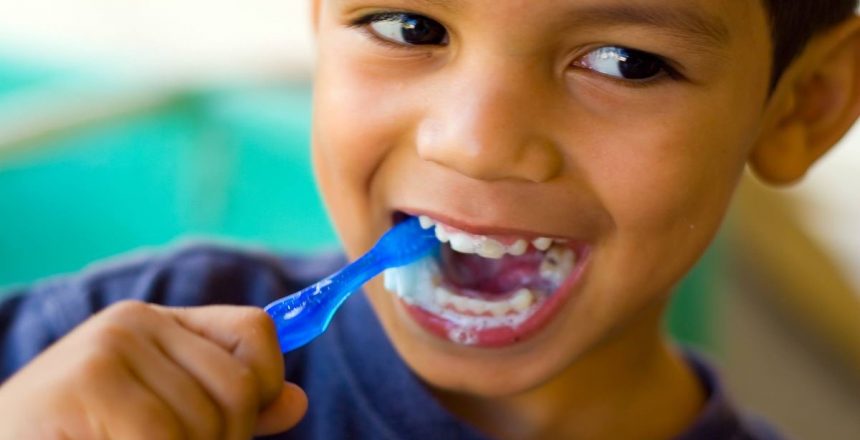We all hear about the importance of oral hygiene, whether from government health programs that promote the health of our children’s teeth, to our local dentist. It’s even common for tap water in cities to contain fluoride, a substance included for the express purpose of maintaining dental health. Humans use their teeth pretty frequently and no one would dispute their importance, but why is there such a focus on oral hygiene in children specifically? Studies have shown that, not only do cavities affect the physical health of children, but their social and academic performance as well! Fortunately, dental cavities are considered largely preventable with the right dental practices that can be instilled in children at a young age.
What is Oral Health in The First Place?
Oral health in its most simple definition is the maintenance of a clean mouth to prevent tooth and gum disease. As we eat and drink, food mixes up with saliva and the naturally present bacteria in our mouths, forming plaque (the white-ish substance that builds up on teeth). When left uncleaned, the bacteria in plaque could start eating our dentin (the outermost layer of teeth) away, resulting in the bacterial infection of the tooth. This infection is what cavities (or caries) are. Similar to cavities, gum disease is also caused by the bacteria present in plaque, which can also infect the gums and cause inflammation. Sugary foods are especially good at causing the formation of dental cavities and other forms of oral infections since they are not only children’s favorite food but bacteria’s as well. This means that too much candy and not enough cleaning creates the perfect growing environment for bacteria, and so ensuring that plaque is thoroughly removed when brushing and flossing is of key importance in preventing dental and gum disease.
How Does Bad Oral Hygiene Lead to Poor Academic Development in Children?
As we know, dental cavities can cause severe pain. This pain could impact children’s basic activities throughout their day. Concentration in school could be largely affected by this, which can lead to worse academic performance. Research reflects this, showing that children experiencing discomfort due to cavities are four times more likely to have grades well below the average for their age group. Children who experience dental problems are also three times more likely to miss school compared to their healthy peers.
How Can Cavities be Prevented?
The good news is that cavities are a largely preventable illness. Proper oral hygiene practices are not only important for children’s teeth, but for their academic performance and social confidence as well! There are three staples to ensuring ongoing dental health:
- Practice good oral hygiene from a young age.
- Start brushing your child’s teeth as soon as their first tooth emerges. Gentle flossing becomes necessary when adjacent teeth appear, usually around the age of two or three.
- Use fluoridated toothpaste or water.
- Fluoride is essential in the formation of healthy, strong bones and teeth. Check your local drinking water source if it is fortified with fluoride. If not, no problem, just ensure that you use a fluoridated toothpaste for your children.
- Pay a visit to the dentist once every 6 months.
- Take your child to their first dentist’s appointment when they turn one. This will ensure that the dentist will provide you with the appropriate ways to care for your child’s oral health. Try to take your children to the dentist for your dentist visits more frequently, so they become more comfortable when their turn comes.

How Can You Help Your Children Develop Good Dental Habits?
As expected, parents have the most important role in ensuring their children maintain great oral hygiene. Here are some tips caregivers may use to improve their child’s oral health:
- Like building any other good habit in children, parents should be a role model. Let your child see you brushing your teeth, or even better, brush your teeth together. This helps your child to see teeth brushing as a fun activity instead of a task.
- A follow up brushing after your child has brushed their teeth is recommended until the age of 10, since children fully develop the necessary motor skills for sufficient brushing at that age.
- Let your child choose their own toothbrush. A toothbrush with your child’s favourite cartoon character or colours will encourage them to brush their teeth more often!
Children’s oral health is an integral part of their overall wellbeing and has a strong impact on their academic and social development. Therefore, as parents and caregivers, we should make an extra effort in teaching its importance to our children, to aid and ensure their healthy development into adulthood.
Enjoyed this article? Visit the 4P Academy Blog for more informative pieces on a variety of fascinating topics.

